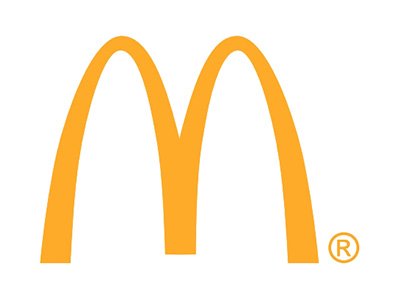麦当劳公司(MCD.US)2025年第一季度业绩电话会
文章语言:
简
繁
EN
Share
Minutes
原文
会议摘要
Despite facing macroeconomic uncertainty and declining industry traffic, McDonald's leveraged successful campaigns like 'Hockey Showdown' and its M-Value platform to boost brand affinity and sales. The company also addressed internal control opportunities, optimized spending, and invested in digital and technology to drive long-term efficiency and growth, reaffirming its financial targets and focus on value and affordability for diverse consumer segments.
会议速览
A recorded investor conference call for McDonald's Corporation introduces the participation of key executives and outlines the agenda, emphasizing the importance of forward-looking statements.
Facing macroeconomic uncertainty and declining global QSR industry traffic, McDonald's emphasizes its brand strength and global scale to outperform competitors. The company introduces expanded value propositions, innovative products, and marketing campaigns, including a major partnership with the Minecraft Movie, to improve guest counts and market share. Amid these efforts, McDonald's also announces the creation of a Global Restaurant Experience team to accelerate innovation and execution in product and tech advancements.
Despite facing industry and consumer pressures, severe weather conditions, and the impact of the Leap Day, McDonald's launched several strategic initiatives including the M-Value platform, national marketing campaigns, and menu innovations to address consumer needs and drive customer satisfaction to all-time highs in key markets. While the first quarter global comp sales declined, the company reported positive comp guest count gaps to most near-end competitors and reaffirmed its full-year financial targets, emphasizing its focus on digital and technology investments for long-term growth.
McDonald's global leaders met in Hyderabad to discuss accelerating the Arches growth strategy, focusing on value, menu innovation, customer experience, and values-based business practices. The meeting highlighted the strength of the franchisee model, the brand's commitment to local communities, and its position to drive growth and market share amid economic challenges.
The speaker discusses the evolving sales trajectory in the US, highlighting the success of recent marketing campaigns and menu innovations. They emphasize the importance of execution in a pressured consumer environment, noting the need to outperform competitors in value programs, marketing, and menu innovation for continued growth.
The speaker discusses the varied impacts of inflation and consumer pressure across different regions, highlighting the importance of value programs, menu innovation, and judicious pricing. They note stabilization in China, solid performance in Japan, and challenges in Europe due to high inflation, particularly in the beef sector. Despite industry traffic contractions, the company is taking share in major markets through strong value propositions and exciting menu launches.
The discussion analyzes the performance of McDonald's M-Value platform in the current market environment, highlighting the 5 dollar meal deal's success and the lesser incrementality driven by the buy one, add one for a dollar offer. It suggests the need for reviewing the investment in margin dollars for value programs to maximize incrementality.
The discussion explores the challenge of balancing menu pricing with the need for a strong value platform, addressing concerns over potential negative mix shifts and proposing innovation as a solution to introduce lower-priced items while maintaining profitability.
The discussion highlights the importance of disciplined pricing strategies and careful monitoring of pass-through rates to manage inflation impacts effectively. The company emphasizes testing incremental programs and modeling to ensure overall profitability, focusing on driving guest count-led growth and leveraging menu adjustments to respond to consumer needs and inflation trends. The conversation also touches on the expectation for moderate US same-store sales growth and slight margin improvements, despite external uncertainties, by implementing controlled activities and focusing on strong top-line growth.
The UK market requires improved execution to regain share, unaffected by new competition. In the US, declining QSR traffic is attributed to consumers being more selective, leading to reduced visit frequency, particularly noticeable during breakfast, rather than shifting to fast casual or full-service segments.
The discussion highlights the impact of economic pressures, such as inflation and interest rates, on consumer behavior, particularly noting decreased visits to businesses. Strategies mentioned include focusing on value and affordability, exemplified by successful initiatives like the five dollar meal, which have been shown to increase consumer frequency. Additionally, there's an emphasis on learning from experiences in different markets, such as France, to address challenges in the UK. The dialogue also explores the potential of expanding beverage tests, questioning the investment needed from franchisees and how this could be positioned as a margin or value product, underscoring the importance of adapting offerings to meet consumer needs in a challenging market.
The company sees significant growth potential in the beverage sector, particularly in coffee and energy drinks, aiming to capture a larger share through innovation and standalone concepts. Learning from past initiatives, they recognize the importance of recipe-based offerings and the enduring demand for food alongside beverages under the McDonald's brand. Additionally, the company is addressing local pricing strategies to maintain competitiveness and is reintroducing chicken products in response to market trends and customer preferences.
The speaker discusses the pressure on low and middle-income consumers in the US, noting a decline in spending for these groups while high-income consumers continue to spend robustly. They emphasize their company's focus on value and affordability to maintain competitive edge and win on comparable traffic basis, highlighting the importance of upcoming launches and strategies to cater to all consumer groups.
The discussion explores the effects of international boycotts on a major fast food brand, noting no significant impact on consumer sentiment or business globally despite rising anti-American sentiment in some markets. Additionally, it addresses the evolution of the brand's digital value strategy, emphasizing the importance of balancing mobile app usage with broader platforms to reach a wider consumer base.
The discussion highlights McDonald's strategy to sustain sales growth through a balanced approach of compelling value offers and differentiated menu innovations paired with strong marketing programs. The company emphasizes a steady flow of menu innovations and marketing activities planned through the end of the year, aiming to build continuous momentum and improve baseline sales performance following recent disruptions.
The discussion highlights McDonald's approach to managing a broad menu while maintaining operational efficiency and speed of service. Key strategies include focusing on specific product categories, simplifying the core menu, and utilizing platforms for menu innovation to effectively compete against specialized competitors without compromising customer satisfaction or execution.
要点回答
Q:What is the impact of economic pressures on different consumer income groups?
A:Economic pressures are broadening, with low and middle-income consumers facing significant challenges, as indicated by the US QSR industry traffic decline, whereas traffic from high-income consumers remained solid.
Q:How is McDonald's responding to the economic challenges in terms of value proposition?
A:McDonald's is responding to economic challenges by expanding and refining its value proposition, offering everyday affordable price menus and entry-level meal bundles in international markets, and launching the m-value platform in the US, which includes a new branded equity and value meal deals.
Q:What are the objectives and expected benefits of the newly created McDonald's Global Restaurant Experience team?
A:The objectives of the newly created team are to enable faster execution, to scale cross-functional product innovations, and to develop and scale tech innovations such as ready-on-arrival technology and Google Cloud connectivity. The expected benefits include improved efficiency in menu supply chain operations and enhanced capabilities for developing and scaling technology innovations.
Q:What changes are happening in McDonald's leadership and what markets are they affecting?
A:Joe McDonald has stepped up to lead the new Restaurant Experience team, and the previous president of International Developmental License Markets, now president of McDonald's France, and Dario Baroni will take over as IDL president.
Q:How did McDonald's first quarter financial results and market performance compare to industry conditions?
A:McDonald's first quarter financial results reflect increasingly challenging industry and consumer pressures. Global comp sales declined, but positive comp guest count gaps were maintained versus most near-end competitors. In the US, comp sales were flat when excluding the impact of the Leap Day, supported by the m-value platform and positive comparable sales in international markets despite a softening consumer sentiment.
Q:What is McDonald's approach to value platforms and menu innovation?
A:McDonald's approach to value platforms and menu innovation includes the ongoing m-value platform with everyday value meal deals, national marketing campaigns celebrating McDonald's history, such as National Egg McMuffin Day, expanding the availability of Bagel Sandwiches, and delivering exciting menu innovation and world-class marketing efforts.
Q:What were the global sales and earnings per share results for the quarter?
A:Comp sales for the quarter were up 3.5 percent, with adjusted earnings per share of $1.04, which includes a 4 cent headwind from foreign currency translation. Adjusted earnings per share increased by 1% compared to the prior year in constant currencies.
Q:What were the challenges faced by the company in terms of margins and commodity inflation?
A:Company-operated margins were lower due to pressured top line results and commodity inflation, particularly in Europe. This was partially offset by lower general and administrative spend, influenced by the timing of investments and prior year costs related to the biannual worldwide convention.
Q:What are McDonald's strategic priorities and areas of focus for the remainder of the year?
A:McDonald's strategic priorities include investing in digital and technology initiatives and transformation efforts led by the global business services organization to enhance long-term efficiency. The company remains focused on optimizing business spend while reaffirming full-year financial targets outlined in February, which account for the impact of current tariffs and expect foreign currency translation to be a tailwind to earnings per share.
Q:How is McDonald's positioned to succeed despite industry headwinds?
A:McDonald's is well-positioned to succeed due to the resiliency of its business and overall financial strength. The company remains confident in its ability to deliver long-term profitable growth for the system and to create value for shareholders.
Q:What were the highlights of the global strategic meeting in India?
A:The global strategic meeting in India focused on accelerating the Arches growth strategy, specifically commitments to value and affordability leadership, leveraging new category teams to enhance customer perception of food and menu innovation, and ensuring restaurants provide memorable experiences.
Q:What are McDonald's key priorities regarding franchisees and local communities?
A:McDonald's prioritizes the connection of franchisees to local communities, with a model that is deeply rooted in local business. Franchisees have a keen understanding of how to bring positive impact and value to their local markets.
Q:What is McDonald's approach to menu innovation and value proposition?
A:McDonald's is focused on executing menu innovation and enhancing value propositions, which align with customer insights and competitive advantages. The goal is to deliver world-class execution in an environment where consumers are under pressure.
Q:How is McDonald's celebrating its 70th anniversary in business?
A:McDonald's is celebrating its 70th anniversary by honoring a legacy of innovation, including advancing the menu, pioneering the drive-through, and embracing digital transformation to build the best restaurant experience.
Q:What is the global economic outlook and McDonald's strategy for execution in the current environment?
A:The global economic outlook presents challenges, but McDonald's strategy is to out execute competitors through strong execution on value programs, marketing, and menu innovation. The company's focus is on making world-class execution a priority in an environment with a pressured consumer base.
Q:How do consumer dynamics and value perception vary between key international markets and the US?
A:Consumer dynamics and value perception vary significantly between key international markets and the US. Europe has a very inflationary environment with high single-digit inflation due to beef prices. The US shows pressure on lower-income consumers, with traffic declines of nearly 10% observed among this demographic, whereas other countries like China, Latin America, and Japan perform solidly.
Q:What are the essential components of strong value in place in the big Ed markets?
A:The essential components of strong value in place in the big Ed markets include edapalli and entry-level meal bundles.
Q:What is the impact of the 5 dollar meal deal and the buy one ad, 1 for a dollar in the US?
A:The 5 dollar meal deal is performing well and is expected to continue through the balance of the year. However, the buy one ad, 1 for a dollar is not driving nearly the amount of incrementality compared to the 5 dollar meal deal, which is a concern for the US team and franchisees.
Q:Does the spread between different sides of the menu become a problem in the US, and how does innovation factor into this?
A:The spread between different sides of the menu in the US is something to be mindful of, but innovation such as introducing lower-priced items like strips could potentially solve this issue. The focus is on having strong value programs paired with great full-margin marketing and menu innovation to ensure a positive outcome for franchisee P&L and the company's P&L.
Q:How does the company manage menu pricing and ensure profitability for franchisees?
A:The company manages menu pricing by being disciplined, looking at pass-through rates, and ensuring judicious pricing. They also test incremental programs to ensure that the profitability works for both franchisees and the company.
Q:What is the company's outlook for US same store sales and Macopco margins?
A:The company continues to believe that for the total year, US Macopco margins will be slightly up on a percentage basis compared to 2024. However, there is uncertainty in the external environment and margin growth will be driven by strong top line growth, which is a focus for the remainder of the year.
Q:What is the status of the UK market and what is needed to address its challenges?
A:The UK market is not yet gaining share and there are challenges to be addressed. The share losses are to competitors that should be beaten, and the focus is on executing better in the UK market.
Q:Is the decline in QSR traffic in the US due to a shift into other segments or a reduction in frequency?
A:The decline in QSR traffic in the US is not attributed to a shift into other segments but is rather due to people being more judicious about their visit frequency, with some choosing to skip breakfast or eat at home.
Q:What are the perceived opportunities and challenges in the UK market?
A:The opportunities in the UK are considered narrower than in France, which has faced complex challenges but has made progress that provides confidence in translating learnings to improve the UK business. The big issue affecting consumer visits is the reduction in consumer visits due to pressure on consumer sentiment, particularly from inflation and higher interest rates impacting lower and middle-income consumers. Value and affordability, like the five dollar meal, are strategies that bring consumers back and increase their frequency of visits.
Q:What are the company's expectations regarding the expansion of their beverage test?
A:The company sees significant growth potential in the beverage category and views it as an opportunity for profit pool growth. The expansion aims to capture a greater share of this growth, especially in areas like coffee and energy drinks where they currently have limited presence. The intention is to test and learn from the beverage platform's reception and performance, which could involve exploring a standalone concept to manage complexity and risk. A focus on recipe-based beverages rather than complete customization was a key learning from the cosmics project.
Q:What has the company learned from the cosmics project that informs its next steps?
A:The company learned that 80% of consumer preferences are for pre-set recipes rather than complete customization, significantly reducing the risk of complexity. Additionally, there is a strong consumer expectation for food products alongside beverages when the McDonald's brand is associated with the concept. These insights are now guiding the approach to integrating an expanded beverage lineup within McDonald's restaurants and understanding its impact on driving traffic and food attachment.
Q:Does the company plan to invest in menu price certainty or focus on local competition, and why?
A:The company does not seek to achieve uniform menu pricing across the country but rather focuses on competitive local pricing that reflects the trading area around each restaurant. The priority is to offer strong value relative to the local market, which is communicated through menu boards and promotions. With inflation pressures being low, the focus is on remaining competitive without causing consumer pushback. The company is also cautious about overreacting to pricing and ensuring that franchisees are disciplined with cost management.
Q:What is the consumer response to the new menu items, and what is the strategy to address market demand?
A:The consumer response to new menu items like the 'McCrystal' and the chicken strips has been positive, and the company is confident that these additions will be well-received. The strategy is to continue meeting consumer needs by diversifying the menu with offerings like chicken strips, which are expected to attract different consumer segments and enhance the menu's appeal.
Q:How is the company managing market share across different consumer income groups and what is their strategy for the low and middle-income segments?
A:The company is facing challenges as there is pressure on low and middle-income consumers, evidenced by their industry traffic decline. The high-income consumer continues to spend robustly. The company's strategy is to leverage value and affordability to maintain market share, with positive comparable traffic growth versus competitors in the quarter. The plan is to further enhance the value proposition, especially with the launch of the 'Minecraft' initiative, to ensure the company can win across all consumer groups.
Q:What is the strategy for McDonald's in terms of app usage and broad platform availability?
A:McDonald's strategy includes having a broad platform like m-value that's available to everyone to ensure it reaches the majority of consumers, as relying solely on app usage does not reach a broad audience.
Q:How has the change in digital offers affected consumer behavior?
A:The change in digital offers may have led to a decrease in their use, as consumers appear to be more drawn to m-value. The company has not purposefully reduced digital offers to focus more on m-value.
Q:Has there been any impact on McDonald's brand due to international boycott concerns?
A:Research surveys indicate that there has been no change in consumer sentiment towards the McDonald's brand globally despite an increase in people saying they will cut back on American brands and upticks in anti-American sentiment in certain markets like northern Europe and Canada.
Q:How are McDonald's franchisees involved in the communities they operate in?
A:McDonald's franchisees, who operate the majority of restaurants, live and work in the communities they serve, supporting local businesses and contributing positively to the places where they operate.
Q:What concerns might there be regarding the momentum of McDonald's sales?
A:Concerns revolve around whether the first quarter's sales were lacking in the 'craving for the customer to trade up' aspect, and if the success of the 'Minecraft meal' will be sustainable beyond a few weeks.
Q:What is the approach to menu innovation and marketing plans for McDonald's?
A:McDonald's has a balanced approach to menu plans with ongoing menu innovation across various markets and strong marketing programs. This dual strategy is expected to improve baseline performance over time.
Q:How has McDonald's managed through challenges such as the food safety incident and the impact of new products?
A:McDonald's managed challenges by focusing on recovery following the food safety incident, then emphasizing MC value and brand equity. Although the 'Minecraft' meal was a big consumer resonating activity, the company has seen positive momentum in business with each new activity, continuing to build on previous successes.
Q:What are McDonald's expectations for new product introductions in terms of operational impact?
A:McDonald's expects that new product introductions like 'Minecraft' in April will not negatively impact operations or service speed. The company is confident in its ability to handle new offerings, given that the menu remains broad and can attract a family audience.
Q:How are category teams expected to contribute to McDonald's competitive advantage?
A:Category teams are expected to focus on winning in their specific verticals by addressing supply chain, equipment, processes, menu offering, and menu innovation. This will contribute to a degree of focus that allows teams to work towards overall market share in various categories, rather than just individual product lines.
Q:What is McDonald's strategy for simplifying the menu and improving execution?
A:McDonald's strategy for simplifying the menu and improving execution involves focusing on a core menu and building on it with products like strips and wraps. This approach aligns with creating platforms, such as the mccrostie base, to add new items without compromising execution.

McDonald's Corp.
Follow





